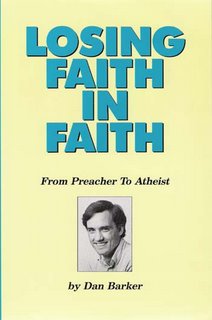Okay, I admit it! I spend most of my free time reading! I can’t help it - I’m addicted to books. I confess I’m an addict.
That being said, of all the books that I plan to read, there are three that I definitely want to complete this year.
The first is Charles Darwin’s Origin of the Species, the book that - published in 1859 - set out the theory of evolution by natural selection. I’m fascinated in the whole evolution vs. creationism debate, and, for me, reading this classical work is long overdue.
The second book is Mere Christianity, by C.S. Lewis. I’ve already read Screwtape Letters, and have great respect for Lewis as a writer. I tried to read Mere Christianity when I was much younger, but I don’t think I was mentally prepared for it at the time. I found it extremely complicated, and I gave it up after the first chapter. I will give it another shot this year.
But most important, the third book that I plan to read fully this year is the Bible. As a Christian, I studied and read much of it, but only selected portions. Now I’ve found a renewed fascination for the book, and I want to experience it through different (non-Christian) eyes. I have already completed the books of Genesis and Exodus, and have been fascinated in discovering the Bible for what it really is: not an inherent, word for word dictation of some supernatural being, but rather a rich tapestry of different types of writings from different cultures and people - containing poetry, myths, legends, history, song, and wise council. The Bible contains a lot of good, but also a lot bad. I want to read it with a spirit of discovery, and realise all it weaknesses and its strengths.
Books are powerful things. They enable us to learn and discover. I just want to ask those - Christian and non-Christian alike - who might stumble across this article: which books made an impact on you as a person, and why? For me, Carl Sagan’s A Demon-Haunted World made an impact on my philosophy of thought. Doubt and scepticism are the highest virtues according Sagan’s philosophy, and this is what attracted me to his ideas.
I look forward to another year of reading.

